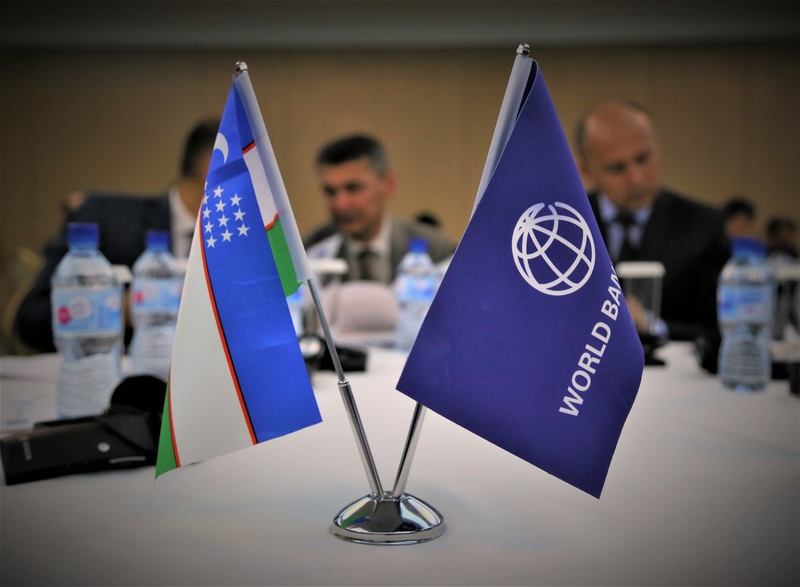
AKIPRESS.COM - The World Bank released its new Systematic Country Diagnostic analyzing key challenges and opportunities for Uzbekistan’s development. It contains policy recommendations for removing barriers to private sector growth, reducing the state’s role in the economy, focusing on people and their human capital, and transitioning to a green economy. The report is the foundation for selecting priority areas for the World Bank Group’s cooperation with the government of Uzbekistan in 2022-2026.
In April 2022, the World Bank Group (WBG) completed work on its second Systematic Country Diagnostic (SCD) for Uzbekistan (the first one was produced in 2016). This flagship report is produced for a partner country every five years to identify key challenges and opportunities to ending poverty and boosting shared prosperity.
Since 2017 the government of Uzbekistan has implemented transformative reforms to liberalize the economy and business environment, improve the well-being of citizens, and make the state more oriented to people’s needs, most of which are analyzed in the SCD.
Planning the next generation of reforms, Uzbekistan has set ambitious goals of becoming an upper-middle-income country by 2030 and reducing poverty by half by 2026. Achieving these goals requires much higher economic growth than the current level through faster job creation and reduced economic exclusion— especially among youth, women, and people with disabilities.
The SCD outlines four development pathways that can help Uzbekistan achieve these ambitious goals:
1) encouraging more private sector growth and job creation;
2) reforming the role of the state in the economy;
3) investing in people-focused policies and human capital; and
4) building an environmentally sustainable and resilient future.
Thirteen policy priorities emerged from the analysis in the SCD. Each development pathway is supported by a set of goals and key reform priorities that are drawn from technical analysis conducted by the government, the World Bank, and other development partners. Assessments of lessons learned by other transition economies also helped support the development of policy priorities.
For instance, the report recommends the authorities focus on the following reform priorities:
• To encourage private sector growth, the authorities should improve the allocation of land, labor, and finance, as well as the legal and regulatory framework for competition across the private sector; adopt trade and investment policies that favor the private sector’s global integration; establish strong private sector support services; accelerate agricultural market reforms that, among other things, will end the state’s interference in the agricultural market.
• To strengthen the market enabling role of the state, the authorities should accelerate the state’s transition from producer to market enabler with fewer and better performing state-owned enterprises; address infrastructure gaps; reduce corruption and improve governance across the state institutions; decentralize government functions; increase public accountability.
• To improve human capital, the authorities should address gaps in education quality; improve access to early childhood and tertiary education; strengthen the performance and affordability of the health system; improve water and sanitation services across the country; improve poverty measurement, policy, and targeting; develop labor market policies encouraging the inclusion of vulnerable groups; increase the coverage and adequacy of social safety nets for those in need.
• To build an environmentally sustainable and resilient future for Uzbekistan, the authorities should manage natural resources more effectively, including water and land, more efficiently; take measures to decarbonize and modernize the economy, including the energy sector; improve natural disaster management.
“We are grateful to the government for their close collaboration and for making available all necessary data needed to prepare the SCD. The report serves as an important foundation for the WBG’s new Country Partnership Framework (CPF) for Uzbekistan which will outline our financial and analytical support to Uzbekistan in implementing crucial reforms in the next five years. The World Bank’s Board of Executive Directors will review the CPF in late May,” said Marco Mantovanelli, World Bank Country Manager for Uzbekistan.
